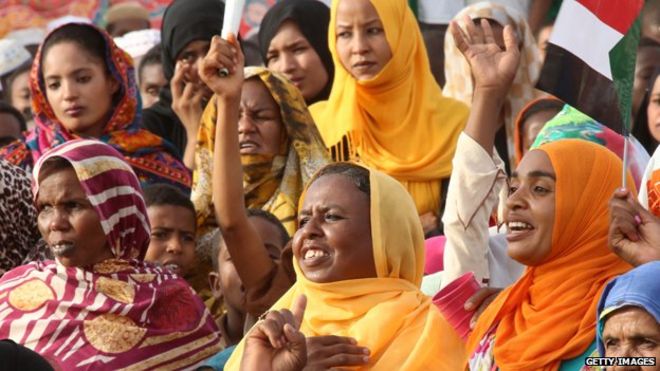
Sudanese voters head to the polls on 13 April to elect a president, MPs and state legislators in the first general election since South Sudan gained independence in 2011.
President Omar al-Bashir, who is seeking re-election, has ruled the country for the last 26 years and is widely expected to win.
The main opposition parties are boycotting the polls, saying Mr Bashir and his party have monopolised power and restricted civil liberties, making free and fair elections impossible.
The European Union has said the election cannot produce a “credible result”.
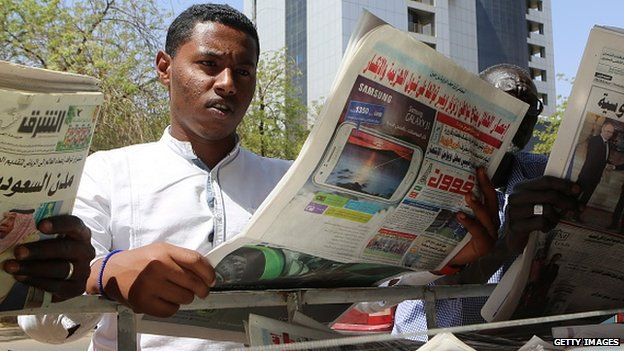
The polls coincide with increased fighting in the western Darfur region and in the South Kordofan and Blue Nile regions in the south of the country between government forces and insurgents from the Sudan People’s Liberation Army-North (SPLM-N).
How does the electoral system work?
Voting will take place over three days ending on 15 April, in only the second election since 1989.
To win, a presidential candidate must secure more than 50% of the total vote in the first round to avoid a run-off. According to the constitution, a president can serve a maximum of two five-year terms.
The National Electoral Commission (NEC) has confirmed that voting will take place in Abyei and Halayeb, two disputed areas with South Sudan and Egypt.
Final results are expected on 27 April.
Who are the main candidates?
President Omar al-Bashir is up against 15 little-known candidates in the presidential election. Only six belong to political parties, while the rest are standing as independent candidates.
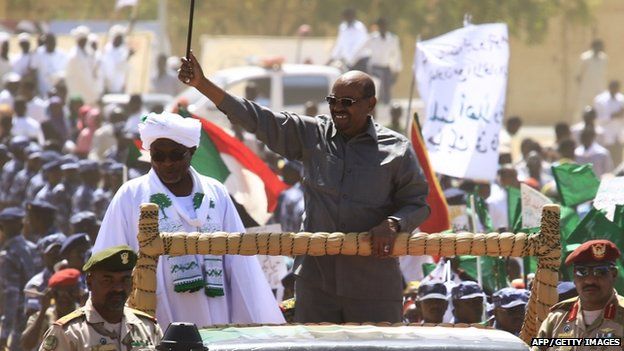
The 71-year-old has ruled Sudan since 1989 after taking power in an Islamist-backed coup. A career soldier, the leader of the ruling National Congress Party (NCP) is wanted by the International Criminal Court (ICC) on charges of genocide and war crimes in Darfur – allegations he denies.
Fatima Abd-al-Mahmud is the only female candidate, standing for the Sudanese Socialist Democratic Union (SSDU). She made history in 2010, when she became the first woman to contest the presidential election, winning just 0.3% of the vote. A qualified paediatrician, the 71-year-old entered politics four decades ago and has served in several ministerial posts.
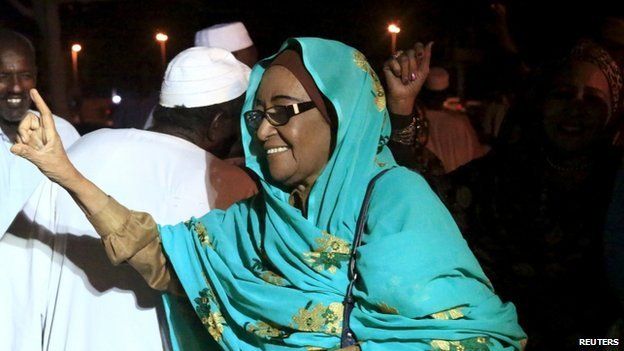
Asad al-Nil Adil Yasin Haj al-Safi, 47, is an engineer by profession and has worked in both the public and private sectors. He lives in the United Arab Emirates (UAE) and runs several management consultancy firms.
Fadl al-Sid Shuaib is a lawyer, who heads the moderate Federal Truth Party (FTP).
Nicknamed Al-Sufi, Muhammad al-Hasan, 46, has Sudanese-US dual citizenship. He is standing as a candidate for the National Reform Party. A philosophy graduate, he also ran for election in 2010.
Abdel Mahmud Abdel Jabbar, 46, is standing for the Union of Ummah Forces. He is a law graduate and businessman.
Which political parties are taking part?
As with the presidential election, Mr Bashir’s National Congress Party is expected to do well. It currently holds 90% of the 450 seats in parliament.
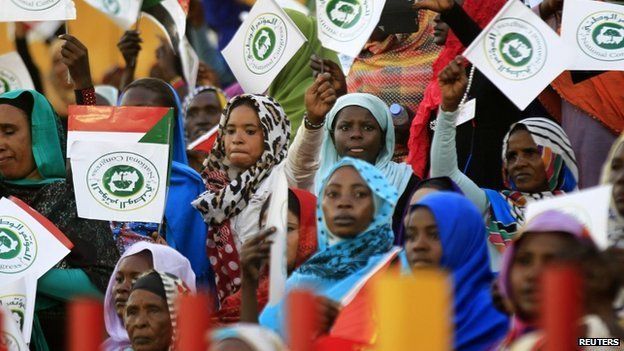
Forty-four political parties are taking part, according to official figures. Aside from the NCP, the Democratic Unionist Party is the only one of the older, more established parties running.
Most of the parties taking part are newly formed and relatively unknown. They include the Justice Party, the Federal Truth Party (FTP), the Union of Ummah Forces, the National Reform Party (NRP), and the Sudanese Socialist Union Party.
What are the key issues?
At a campaign rally in February, Mr Bashir called for continued dialogue with the United States and said that securing peace in the country’s restive areas would be his “highest priority” if re-elected.
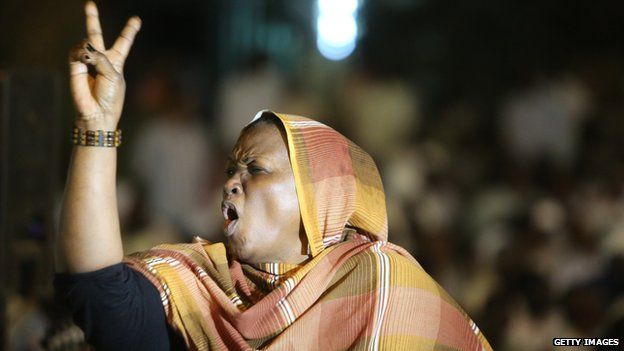
Presidential candidate Muhammad al-Hassan has pledged to work with the US administration to lift economic sanctions imposed on the country and have it removed from the list of state sponsors of terrorism.
Some commentators have criticised the candidates for focusing too much on relations with the US at the expense of domestic issues, such as Sudan’s faltering economy and work towards drafting a permanent constitution.
Sudan’s economy has suffered badly since the split from the south, when it lost most of its vital oil revenues and prices skyrocketed.
Is there a risk of poll violence?
The SPLM-N, which supports the opposition boycott, has threatened to stop voting from taking place in South Kordofan. Rebels recently claimed to have intercepted a vehicle carrying ballot boxes in the region.
The electoral commission has now postponed voting in seven of the 24 constituencies of South Kordofan because of security concerns.
(Source: BBC)































